Qualitative Research Recruiting: Navigating the Challenges
Mastering Multicultural Focus Groups and In-Depth Interviews
February 11, 2025By Marco Aurelio Garcia
At the core of any successful marketing research project is recruiting the right participants. Even the most carefully designed questionnaires, focus groups, or discussion guides will not be effective without a diverse and well-qualified group of participants. Successful research requires hearing from voices that truly represent the population.
In today’s increasingly diverse world, multicultural market research is vital for capturing authentic insights. This is especially true when engaging with Hispanics, one of the fastest growing and most influential consumer groups in North America. Many studies still fail to fully reflect this diversity, limiting their relevance and impact.
Multicultural market research is not just about meeting quotas or checking diversity boxes. It’s about truly understanding the lived experiences, values, and needs of various communities. To achieve this, research must be centered on effective recruitment, culturally sensitive moderation, and well-structured studies such as focus groups or In-Depth Interviews. This article discusses the common challenges in multicultural market research recruitment, with a special emphasis on engaging Hispanics.
For those interested in learning more about the importance of Hispanic market research, previous articles provide valuable insights:
Why Hispanic Market Research Is Critically Important Today?
How to Master Multicultural Market Research and Thrive in a Diverse Marketplace | CASA Demographics
The Why’s and How’s of Hispanic Market Research | CASA Demographics
Why Multicultural Market Research Recruitment Matters
Inclusive multicultural market research ensures that organizations gain better insights that accurately represent the population’s diversity. For example, recruiting Hispanic participants for focus groups or IDIs requires understanding not just language preferences, but also cultural norms and socioeconomic factors. Without proper representation of Hispanics or other minority groups, businesses risk making decisions based on skewed data. This can lead to ineffective marketing campaigns, poor product-market fit, and missed opportunities to connect with key segments of the population.
Focusing on multicultural market research allows organizations to avoid these pitfalls. A well-executed multicultural recruitment strategy ensures that studies accurately capture a broad range of perspectives. This is especially crucial for Hispanic communities, which have unique concerns, purchasing habits, and cultural influences that can’t be understood through a generalized approach.
If interested in multicultural market research and want to learn more about focus groups and In-Depth Interviews, check out the following articles:
Hispanic Focus Groups: Tapping Into The Determinative Power of the Latino Market | CASA Demographics
Mastering Multicultural Focus Groups and In-Depth Interviews | CASA Demographics
Common Challenges in Multicultural Market Research Recruitment
-Identifying the Right Participants
Every multicultural market research project requires a distinct participant profile. For example, in a study on mental health services, recruiting Hispanic men aged 40+ could be crucial, as they often face cultural stigmas around seeking mental healthcare. Understanding their attitudes toward therapy, preferred support systems, and barriers—such as language, cost, or lack of culturally competent providers—can help shape more effective outreach programs and services for Hispanic communities.
Another example on the political side: a study on voter engagement could focus on recruiting young, first-time Hispanic voters. This group is rapidly gaining influence but often faces challenges such as misinformation, language barriers, and varying levels of trust in the electoral system. By recruiting participants from this group and examining their motivations, concerns, and preferred sources of political information, researchers can gain valuable insights that inform civic engagement initiatives and campaign strategies aimed at the Hispanic electorate.
Without clearly defined participant criteria, recruitment efforts can fall short, and the study might not provide the right information about Hispanic communities. By carefully defining who should participate—based on factors like culture, language, education, and location—recruiting the right individuals ensures the study yields useful, high-quality insights. This approach ensures the results reflect the true needs and experiences of the Hispanic community being studied.
-Language, Cultural Barriers, and Building Trust in Recruitment
For many multicultural communities, especially Hispanic immigrants or older generations, participation in market research can be hindered by privacy concerns or skepticism toward research studies. This is a significant challenge in Hispanic recruitment efforts, but it can be addressed thoughtfully by building trust and understanding.
In multicultural market research, simply translating recruitment materials isn’t enough—it often misses essential cultural context, idiomatic expressions, and references that resonate with participants. Effective recruitment requires not only language proficiency but also a deep understanding of cultural nuances. Culturally competent recruiters are crucial to making Hispanic participants feel understood.
When participants trust the recruiter and feel understood, they are more likely to engage. This trust reassures Hispanic participants that their privacy and interests are being respected.
Reaching Hard-to-Find Audiences. Building an Effective Multicultural Market Research Strategy
Reaching hard-to-find audiences, particularly Hispanic participants who speak primarily Spanish, can be challenging with traditional recruitment methods like online panels. Hispanic participants are often overlooked in more generic strategies.
To effectively engage these diverse populations, partnering with a specialized multicultural market research recruitment firm can streamline the sourcing process. Their expertise in working with multicultural groups, especially Hispanics, ensures better participant matches and saves valuable time. The key to a successful partnership is providing the right details upfront, such as the type of study (e.g., focus groups, interviews, surveys), the target participant profile (e.g., Hispanic patients, caregivers, consumers, professionals, students, or other specific demographic groups), and the study’s timeline and budget.
Developing the Recruitment Screener
The recruitment screener is an essential component of the process. A well-designed screener ensures that Hispanic participants meet the study’s criteria and enables researchers to identify the most relevant individuals for focus groups, IDIs or any other research method. The screener usually include culturally sensitive questions, addressing factors such as primary language and cultural identity and specific experiences.
For example, in a study on health beliefs among Hispanic families, instead of asking, “Do you follow a traditional Hispanic diet?” a better question would be, “How would you describe your family’s eating habits at home?” This phrasing allows for a more accurate reflection of participants’ behaviors and beliefs, which helps ensure that the recruited individuals can provide rich, actionable data.
Once participants are recruited, follow-up calls help to pre-qualify them and ensure that they meet the necessary criteria for focus groups or IDIs. This also allows to gauge their comfort level with sharing their opinions in a group setting, improving data quality and show rates.
When scheduling the sessions, communication is essential. Providing clear instructions ensures that Hispanic participants fully understand the process and feel comfortable participating. Additionally, sending calendar invites with all essential details in advance minimizes confusion and fosters a sense of preparation.
To avoid no-shows, a robust reminder system should be put in place. Reaching out a week before the focus group, sending reminder texts in the preferred language of the participant, and emphasizing the importance of their input helps keep participants engaged and ensures higher attendance rates.
Additionally, moderation is a key factor that can make or break the success of multicultural market research. For Hispanic focus groups or IDIs, moderators should have a deep understanding of cultural nuances to create an environment where participants feel safe sharing their insights. Hispanic participants are more likely to provide honest feedback when they feel understood and respected by the moderator, leading to more authentic insights.
Once the study is completed, evaluating the effectiveness of the multicultural recruitment process is crucial for improving future studies. Gathering feedback from Hispanic participants helps refine future recruitment strategies and ensures that lessons learned are applied to new projects.
Additionally, information is available on multicultural moderators and how to select the right one for focus groups:
Best Practices and Mistakes to Avoid
Best Practices:
+Treat multicultural groups, including Hispanics, as diverse and unique rather than homogenous.
+Utilize a variety of recruitment channels to maximize reach and engagement.
+Offer culturally relevant incentives to encourage participation from Hispanic communities.
Mistakes to Avoid:
+Relying solely on online panels for Hispanic recruitment, which may not effectively reach all segments of the population.
+Planning multicultural market research efforts at the last minute, particularly when targeting hard-to-reach groups like rural Hispanics.
If you’d like to learn about case studies in multicultural market research, you can find a variety of them here: Case Studies | CASA Demographics
Final Thoughts
Effective multicultural market research requires thoughtful recruitment, culturally aware moderation, and participant centered methodologies across various research format such as focus groups or IDIS. Engaging Hispanics and other diverse groups require persistence, creativity, and cultural sensitivity. By prioritizing inclusive research practices, organizations can make better-informed decisions that truly reflect the needs and preferences of the communities they serve. In an increasingly diverse world, ensuring your research is inclusive will drive more meaningful insights and improve your connection with key demographic groups.
Take Action Today
Ready to enhance your multicultural market research efforts? By applying the strategies outlined in this article, you can improve your recruitment process, build stronger connections with diverse communities, and ensure your research reflects true insights. Don’t navigate these challenges alone—reach out to a multicultural market research expert to help you optimize your approach and achieve better results.

